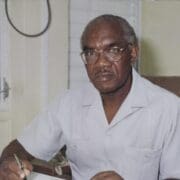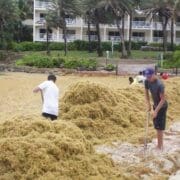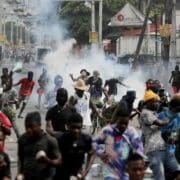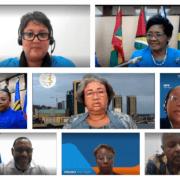Caribbean ministers to address fisheries crimes at Blue Justice Conference 2023
Black Immigrant Daily News
High-level delegations from several Member States of the Caribbean Regional Fisheries Mechanism (CRFM) will participate this week in the Blue Justice Conference 2023, billed by organizers as the largest global high-level event on transnational organised crime in the global fishing industry. The Blue Justice Caribbean Hub–to be housed in Jamaica–will also be launched at the high-level event.
Officials from twelve CRFM Member States–Barbados, Belize, Dominica, Grenada, Haiti, Jamaica, Montserrat, Saint Kitts and Nevis, Saint Vincent and the Grenadines, Suriname, Trinidad and Tobago, and The Turks and Caicos Islands–will be among the participants from approximately 80 countries and territories expected to attend the hybrid event, slated for 23-24 March 2023, in UN City, Copenhagen, Denmark.
The CRFM–the Caribbean Community (CARICOM) institution which leads the region’s efforts to combat illegal, unreported, and unregulated fishing and transnational organized crime in fishing industry–is among the partners joining the Government of Norway and the United Nations Development Programme (UNDP) in convening the international conference.
Mr. Milton Haughton, CRFM Executive Director, will deliver official remarks at the Opening Ceremony on Thursday, 23 March, and will subsequently speak with Conference attendees about regional cooperation mechanisms in the Caribbean.
Haughton said: “The Blue Justice Initiative offers our countries significant opportunities to obtain intelligence, improve maritime domain awareness, access technical assistance, and strengthen national and regional capacities to better monitor and protect our marine resources and combat fisheries crimes, including illegal fishing. We are very grateful for the support being provided by the Blue Justice Initiative and the Government of Norway and other Nordic countries to support our countries in turning the tide against fisheries crime in the region and globally.”
During the conference’s high-level session, delegates from several participating CRFM Member States will present their “Country insights”. This segment of the conference will conclude with a discussion on governance and space technology in support of SDG 14 (Life Below Water) and SDG 16 (Peace, justice and strong institutions).
Conference side events will be held on the Blue Enforcement Project (UNODC) – “Understanding gender roles in tackling crimes in the fisheries sector in Sri Lanka and Maldives”, and the Blue Fairness Project (ILO/UNODC/IOM) – “Using data to inform policies to combat trafficking for forced labour in fishing”.
The second day of the Blue Justice Conference, Friday, 24 March, is dedicated to the Blue Justice Action Forum. During that event, CRFM Member States will participate in a tabletop exercise.
The CRFM solidified its partnership with Norway and the Blue Justice Initiative in 2022, when 12 Member States signed the International Declaration on Transnational Organized Crime in the Global Fishing Industry (the Copenhagen Declaration) en bloc and pledged their support for the Blue Justice Initiative.
To date, fifty-one countries have signed the Copenhagen Declaration, and other countries have been invited to likewise sign the agreement at the upcoming conference and to join the Blue Justice Initiative. Dominica, a CRFM Member State, intends to sign the declaration at the event and join the global effort against transnational crime in the fishing industry.
Donate At Caribbean News Service, we do not charge for our content and we want to keep it that way. We are seeking support from individuals and organisations so we can continue our work & develop CNS further.
NewsAmericasNow.com











